
views
- “Comphet” is an abbreviation of “compulsory heterosexuality,” which means feeling pressured to “act straight,” even if you don’t identify as heterosexual.
- Compulsory heterosexuality is driven by heteronormativity, or the societal idea that straightness is the norm and all other orientations are "other."
- Comphet often affects queer women the most, but can impact the feelings and behavior of straight women, men, and other LGBTQ people as well.
Definition of Comphet

“Comphet” is short for “compulsory heterosexuality.” Compulsory heterosexuality is the idea that women are often pressured to partner with men through various societal pressures like religion, marriage, or depictions of relationships in media, despite their actual sexual orientation or personal desires. This comes from the idea that society assumes that all women are attracted to men. To “be comphet” means to be someone who experiences or has experienced pressure to “act” straight, or even to partner with someone of the opposite sex, despite having little or no attraction to them. For example, comphet folks may use the term to say things like, “I knew I was comphet when I realized I was only with that guy so my parents would stop asking me when I was getting married.” Note that comphet is different from heteronormativity, which is the idea that society assumes all women are attracted to men, or that straightness is the norm for all people.
Who Does Compulsory Heterosexuality Affect?

Compulsory heterosexuality affects lesbian women the most. Lesbian women might feel the pressure to act straight more than anyone. After all, these women were the primary focus of Rich’s essay on the subject. Lesbian women often face prejudice or violence just because of who they’re attracted to, and so choose to hide their sexuality or take part in heterosexual relationships to avoid discrimination. Also, comphet tends to rear its head when people doubt someone’s sexual orientation. Often, gay or lesbian people may feel uncertainty or shame about their orientation because the people around them insist they’re not gay, just “confused,” or something similar.
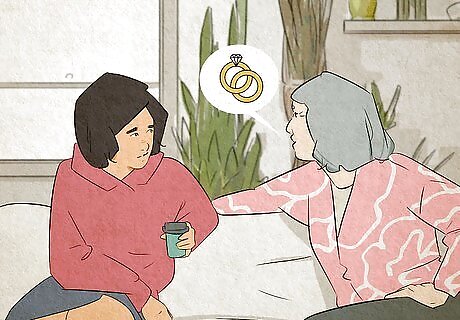
Compulsory heterosexuality also affects straight women. Have your parents ever asked you when they can expect grandchildren? Or have you ever gone out with a guy because you felt pressured to eventually get married? According to Rich, even straight women are pressured into marriage, childbirth, and other aspects of heterosexuality whether or not they want to participate in those aspects. Also, Rich says that women often experience professional or creative roadblocks, since society thinks that their “primary profession” is to be mothers or caretakers, rather than creatives or businesspeople.

Comphet is also a problem for men and other LGBTQ people. Many recent thinkers and writers have argued that compulsory heterosexuality affects everyone, not just women (though women often feel it the most). Men are pressured to find a wife and settle down. LGBT people are pressured to hide their identities or make themselves more palatable to the public. The idea is that comphet is societal and structural, and everyone tends to feel that pressure. Some critics argue that comphet is insulting to bisexual people, since people who discuss comphet tend to accidentally invalidate bisexual people’s attraction to the opposite gender. But bisexual people, too, often feel pressured away from same-sex attraction because of comphet.
Signs You Might Be Comphet

You’re always “testing” how attracted you are to the opposite sex. You’re out somewhere with your friends and they’re talking about how cute that guy over there is. You look him up and down and think, “Am I attracted to him?” You think you are. Maybe. He is cute. Is that attraction? If you’ve ever experienced a situation like this, where you can’t seem to gauge how attracted to someone you think you ought to be attracted to, you may be comphet. This is a handy sign when trying to figure out if you’re a lesbian. Some women feign interest in men because it feels easier than exploring their sexual identity.

You get nervous talking to the opposite sex… for the wrong reasons. Often, people who are comphet think they must actually be heterosexual because they get butterflies in their stomachs when talking to the other gender. Society has told them that’s just what it feels like, but a comphet person might not realize they feel like that because they actually feel unsafe, or because they were told that’s how they should feel.

You like the other sex in theory, but not in reality. You might find yourself fantasizing about finding “the one” and settling down, but when the time comes to get out into the dating pool, “the one” is nowhere to be found. You like the idea of a heterosexual relationship, but in practice you can’t seem to find anyone who could make that idea a reality. Also, you might seem to be more attracted to fictional characters or celebrities than any people you actually know.

A heterosexual relationship is more of a chore than anything. Sure, you don’t mind dating members of the other sex, and now and then you might even have a decent enough time. But at the end of the day, it feels more like something you have to endure than something you should be celebrating. If that’s how you feel, it could be that you’re putting yourself through heterosexuality as some sort of obligation, not because you actually are heterosexual.

You develop crushes on your same-sex friends. You’re super close to some of your friends of the same gender. Like, super close. You spend all your time together, hold hands, and sometimes when you’re with them you feel your chest tighten. Sure, it could be a very close friendship, but there’s a possibility there’s something else happening, and you’ve just been told otherwise.
What to Do if You Think You’re Comphet
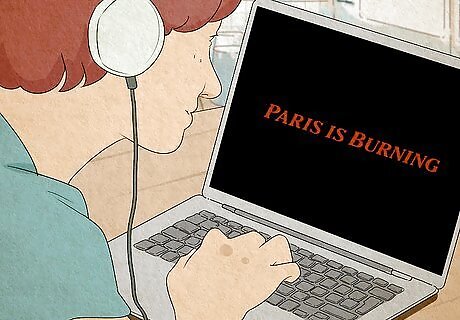
Engage with queer media to help educate yourself about queer lives. Queer media, like films, TV shows, and music, offers a safe and private space for many people who want to explore the culture and lifestyle, and understand more about LGBT people in an engaging way. There’s been a huge influx in positive portrayals of LGBT people, so representation isn’t hard to find. Have a glimpse of queer history with the documentary Paris is Burning, or peek into international queer issues with the film Joyland. Looking for some LGBT tunes? Look to iconic musicians like Elton John, or more recent darlings like MUNA, Perfume Genius, or Joy Oladokun.

Use gender-inclusive terms in your everyday life. Altering the language you use helps you be more inclusive, get a feel for the vocabulary, and signal to others that you’re an ally or are even part of the LGBT community. For example, instead of using “girlfriend” or “boyfriend,” try calling significant others “partners” to avoid assuming others are straight. In addition, get comfortable using “they” when you don’t know someone’s pronouns. Also, don’t be afraid to ask for pronouns!
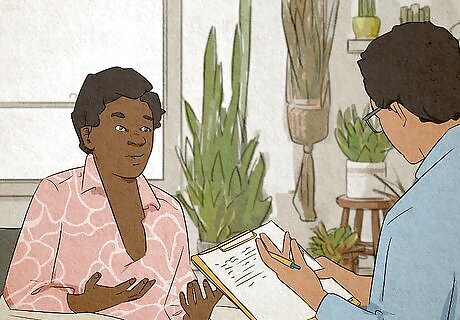
Talk to someone about your experiences. A support system can be vital to feeling understood when you’re questioning your attraction. Chat with a trusted friend or speak with a therapist about what you’re going through. Alternatively, search the internet for queer support groups like TrevorSpace or PLFAG. Often, speaking to others with firsthand experience helps to make sense of your own experiences. You don’t have to come out if it makes you uncomfortable, but understanding your identity and how it affects can take quite a burden off your shoulders.
History of Comphet

The term "comphet" was coined by Adrienne Rich in 1980. Rich was a poet and essayist who, in her essay “Compulsory Heterosexuality and Lesbian Existence,” argues that she and many other women are pressured into marrying men and having children because society tends to assume that all women are heterosexual. Ultimately, Rich addressed the essay to feminists who assumed that all women are naturally attracted to men. In the essay, Rich also argues that sex is often centered on men’s desires rather than women’s, and that men hold a number of societal powers that some use to manipulate or control women. Rich also states that the medical, judicial, and educational institutions in society often favor or cater to men, while actively harming or working against women.
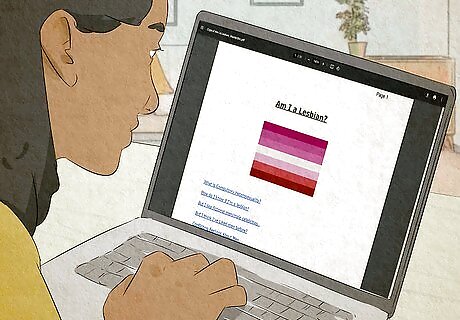
The term “comphet” gained increased popularity in around 2020. Tumblr user Anjeli Luz created “The Lesbian Masterdoc” in 2018 to chronicle her exploration of her own sexuality. The document begins with an exploration of compulsory heterosexuality, echoing Rich’s own essay. Luz went on to give an interview with Vice in 2020 about the document. In the years following, the document gained massive popularity on other social media sites, leading many users on Tumblr, TikTok, and Instagram to adopt the term “comphet” to describe their own personal experiences with their sexualities. When using the term, comphet people may say things like, “I thought I was straight, but it turns out I was only comphet because that’s what people expected from me.”
Similar Terms

Male gaze The male gaze is the idea that, in fiction (particularly film), women are often framed for the pleasure of men, rather than as complex individuals. This is a major aspect of comphet in media, where women feel pressured by books and movies to cater to men, because that’s how those books and movies depict women. Example: “Why did they keep putting the camera on her swimsuit? Classic case of the male gaze.”
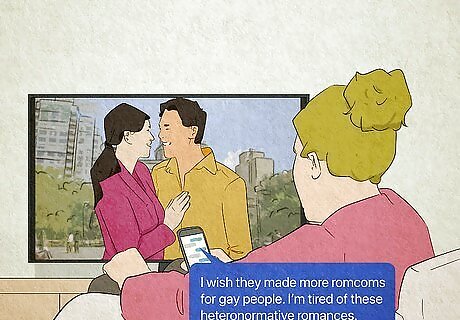
Heteronormativity Heteronormativity is the idea that society is structured for and by straight people, or that heterosexuality is the “natural” way of things. It’s a big aspect of comphet, but tends to be much more passive. For example, you might describe the way most fictional relationships tend to be straight as “heteronormative.” Example: “I wish they made more romcoms for gay people. I’m tired of these heteronormative romances.”
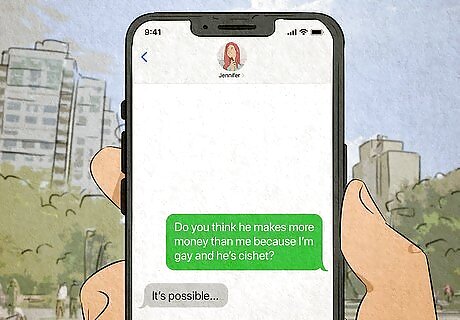
Cishet Short for “cisgendered heterosexual,” this term describes someone who identifies as both straight and as the gender they were assigned at birth. According to comphet ideas, these are the people that society is built for, and everyone else tends to function around a cishet standard. Example: “Do you think he makes more money than me because I’m gay and he’s cishet?”
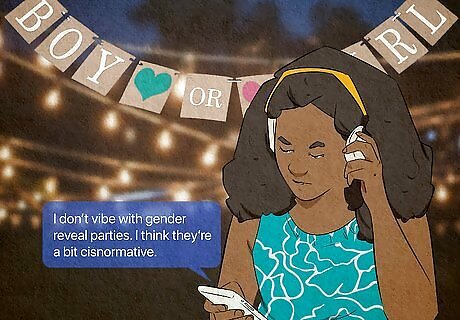
Cisnormativity Like heteronormativity, cisnormativity is the idea that society is structured by and for people who identify as the gender they were assigned at birth. It tends to exclude trans people, and especially becomes a problem in the medical field, where doctors often give subpar care to non-cishet people. It’s just another aspect of the comphet idea. Example: “I don’t vibe with gender reveal parties. I think they’re a bit cisnormative.”

















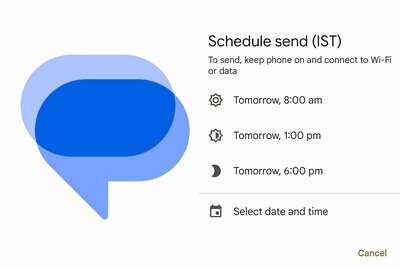


Comments
0 comment